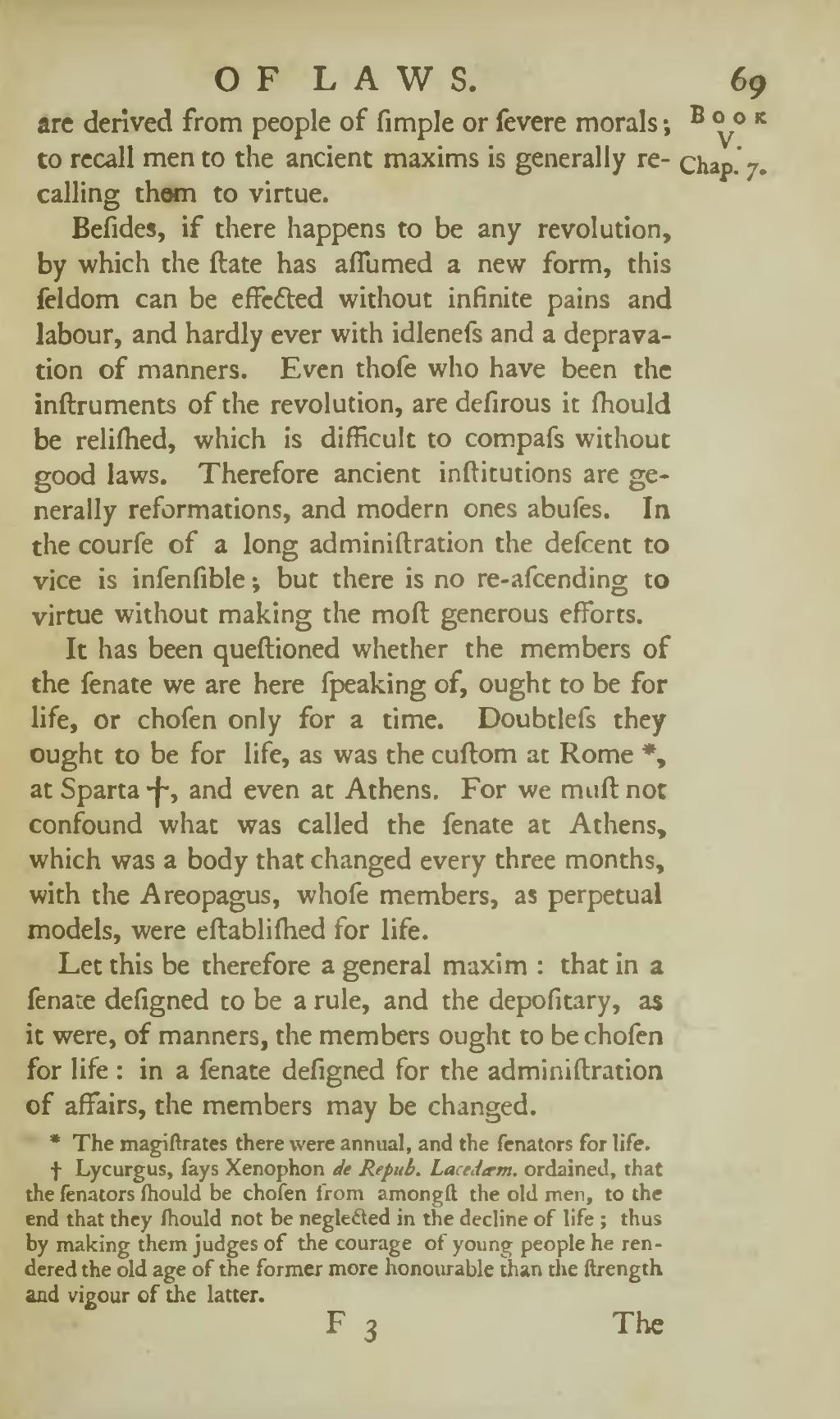Book V.
Chap. 7.are derived from people of simple or severe morals; to recall men to the ancient maxims is generally recalling them to virtue.
Besides, if there happens to be any revolution, by which the slate has assumed a new form, this seldom can be effected without infinite pains and labour, and hardly ever with idleness and a depravation of manners. Even those who have been the instruments of the revolution, are desirous it should be relished, which is difficult to compass without good laws. Therefore ancient institutions are generally reformations, and modern ones abuses. In the course of a long administration the descent to vice is insensible; but there is no re-ascending to virtue without making the most generous efforts.
It has been questioned whether the members of the senate we are here speaking of, ought to be for life, or chosen only for a time. Doubtless they ought to be for life, as was the custom at Rome[1], at Sparta[2], and even at Athens. For we must not confound what was called the senate at Athens, which was a body that changed every three months, with the Areopagus, whose members, as perpetual models, were established for life.
Let this be therefore a general maxim: that in a senate designed to be a rule, and the depositary, as it were, of manners, the members ought to be chosen for life: in a senate designed for the administration of affairs, the members may be changed.
- ↑ The magistrates there were annual, and the senators for life.
- ↑ Lycurgus, says Xenophon de Repub. Lacedaem. ordained, that the senators should be chosen from amongst the old men, to the end that they should not be neglected in the decline of life; thus by making them judges of the courage of young people he rendered the old age of the former more honourable than the strength and vigour of the latter.
